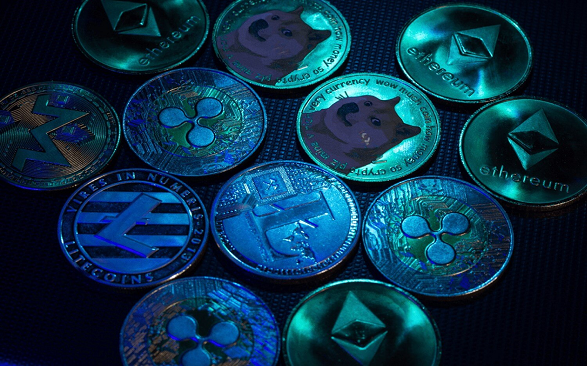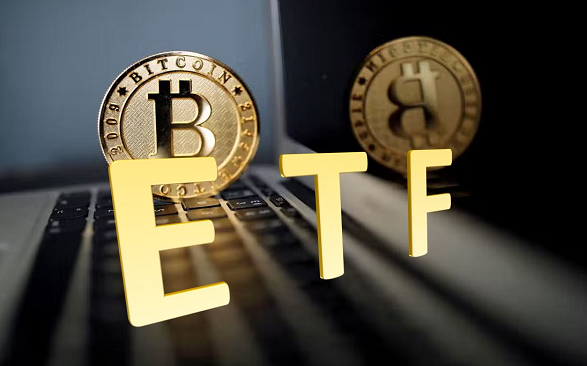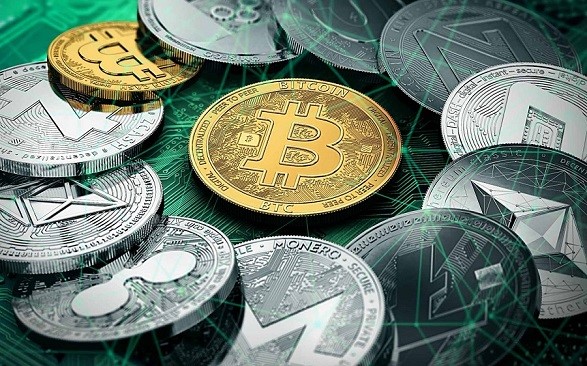The fourth Bitcoin halving event, which cut miner rewards in half from 6.25 bitcoins (BTCs) to 3.125 BTCs per block occurred smoothly on April 19.
However, contrary to popular expectations, BTC and several altcoins did not experience significant price increases in the week following the halving.
The altcoin market has been in a slump, with many cryptocurrencies struggling to regain their footing in a long dip causing striking losses in the crypto space. Ethereum (ETH), the biggest altcoin, has faced its own set of challenges, from scalability issues to smart l-contract controversies and was trading below $3,000 as of May 13.
Also Read: Ethereum targets $1 billion annualized revenue amid increasing DeFi activity in 2024 Q1: Report
Market Downturn and the Global Economic Trends
The market downturn aligns with global economic trends, including the Unites States Federal Reserve’s decision to maintain interest rates between 5.25% and 5.50%. This cautious approach to monetary policy may have created uncertainty among crypto investors, leading them to favor more established assets like BTC. BTC has largely traded above $60,000 levels during this downturn, with its dominance even reaching a high of nearly 57% in April.
Despite the current blues, the altcoin space seems to have hidden opportunities and potentials waiting to be uncovered as analysts believe that altcoins will eventually recover.
The question that arises is, what are these potentials and opportunities lying underneath the gloom of the DIP in the altcoin market?
The Altcoin gloom before the boom: Opportunities lurking around threats
Ethereum, the first and biggest altcoin, is an innovative blockchain network and robust ecosystem. Its potential is vast due to its Turing-complete computing platform, allowing for universal programmability and diverse use cases beyond just “internet money” or “digital gold.”
Ethereum has also introduced a shared settlement and economic layer for the Internet, attracting various industries such as finance, digital art, music, gaming, and e-commerce to build and experiment on its platform. Therefore, providing real life solutions.
With over 7,300 applications, Ethereum has a significantly larger addressable market than Bitcoin, which is limited by its Script programming language.
The altcoin also offers a real yield to ETH holders through user fees and consensus rewards, unlike Bitcoin. Additionally, Ethereum’s network effects are more substantial, with a larger value locked in its ecosystem and over 111 million non-zero wallets.
ETH has more utility than BTC, with 35% of its circulating supply held in smart contracts, providing services and liquidity. Ethereum’s financial performance is also quite notable, generating $2.4 billion in user fees and paying out fewer token incentives to miners compared to Bitcoin. This makes Ethereum a more attractive option for portfolio diversification, with potential use cases differing from Bitcoin’s relatively limited scope.
Also Read: Decentralized Finance Protocols: Disrupting Traditional Banking System
Standard Chartered expected the SEC to approve ether ETFs, which could potentially lead to significant investment inflows of $15 billion to $45 billion within the first year. According to Standard Chartered, this approval could push ether’s price to $8,000 by the end of 2024, aligning its bank’s forecast for bitcoin to hit $150,000.
Indeed, if these ETFs perform similarly to bitcoin ETFs, the influx of investment could substantially boost ether’s market cap. Following the United States Securities and Exchange Commission’s (SEC) request for updated filings, the likelihood of approval seems higher.
Consequently, ether’s price had surged by over 19% in 24 hours, reflecting investor optimism. By 21 May, this represents a 30% price increase within 7 days.
Ethereum and other altcoins also have a vast array of untapped use cases such as decentralized finance (DeFi), which has already shown significant potential. DeFi applications built on Ethereum and other altcoins have enabled lending, borrowing, and trading, disrupting traditional financial systems.
Another important area is gaming and virtual worlds, where altcoins can create immersive experiences and new economies. Social media and content creation are also ripe for disruption, as altcoins can enable decentralized and community-driven platforms. Also, supply chain management and logistics can benefit from altcoins’ transparency and efficiency.
Also Read: What is Blockchain Technology? Meaning, Types, and Use Cases.
Scalability solutions like sharding and off-chain transactions are enabling faster and more efficient transactions. Privacy and anonymity features like zk-SNARKs and ring signatures are ensuring secure and confidential transactions, cross-chain interactions and interoperability are also being developed, enabling seamless communication between different blockchain networks. These technologies have the potential to revolutionize the way we interact with blockchain and cryptocurrencies.
Keep a close eye on the altcoin market.
The altcoin market is undergoing significant shifts and trends that are shaping its future. Institutional investment in altcoins is increasing, as traditional financial players recognize the potential of blockchain and cryptocurrencies.
Emerging markets are also adopting altcoins at a rapid pace, driven by the need for financial inclusion and access. Regulatory clarity and acceptance are also on the rise, as governments and regulatory bodies begin to understand the benefits and risks of altcoins. These trends and shifts are poised to drive the growth and adoption of altcoins in the coming years.
The altcoin market may be experiencing a slump, but it is not a reflection of its potential. Ethereum and other altcoins have vast, untapped use cases, innovative technologies, and hidden opportunities waiting to be tapped into. Not financial advice.
Also Read: Between investing in Bitcoin and Ether
Credit: Solomon Victor is a Technical Analyst who is also knowledgeable about various aspects of blockchain and cryptocurrency.
Discover more from Crypto Asset Buyer
Subscribe to get the latest posts sent to your email.




